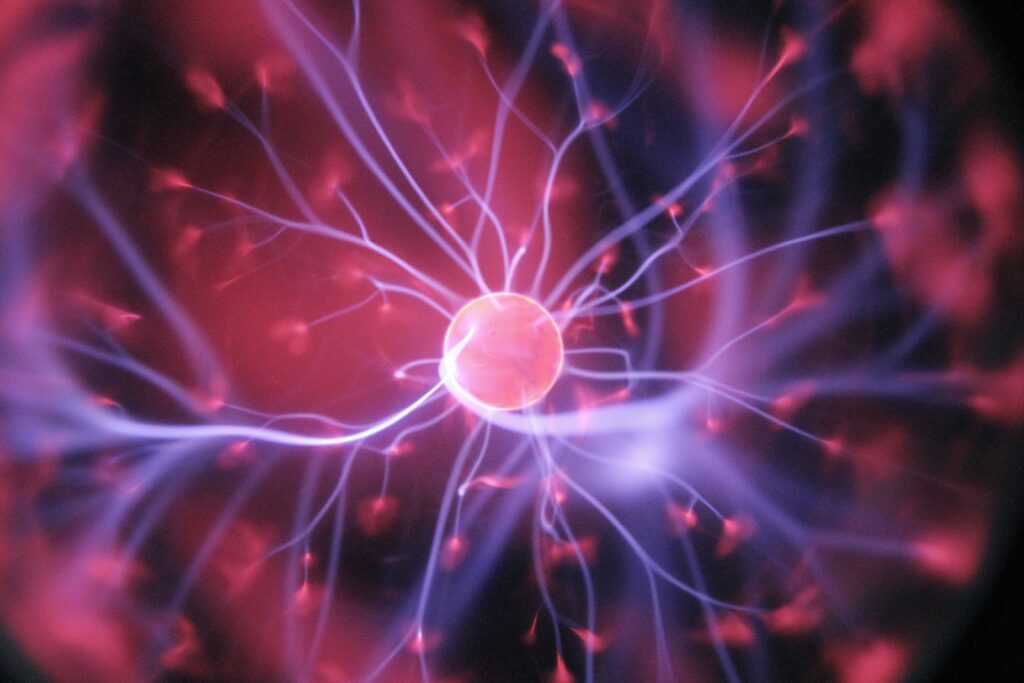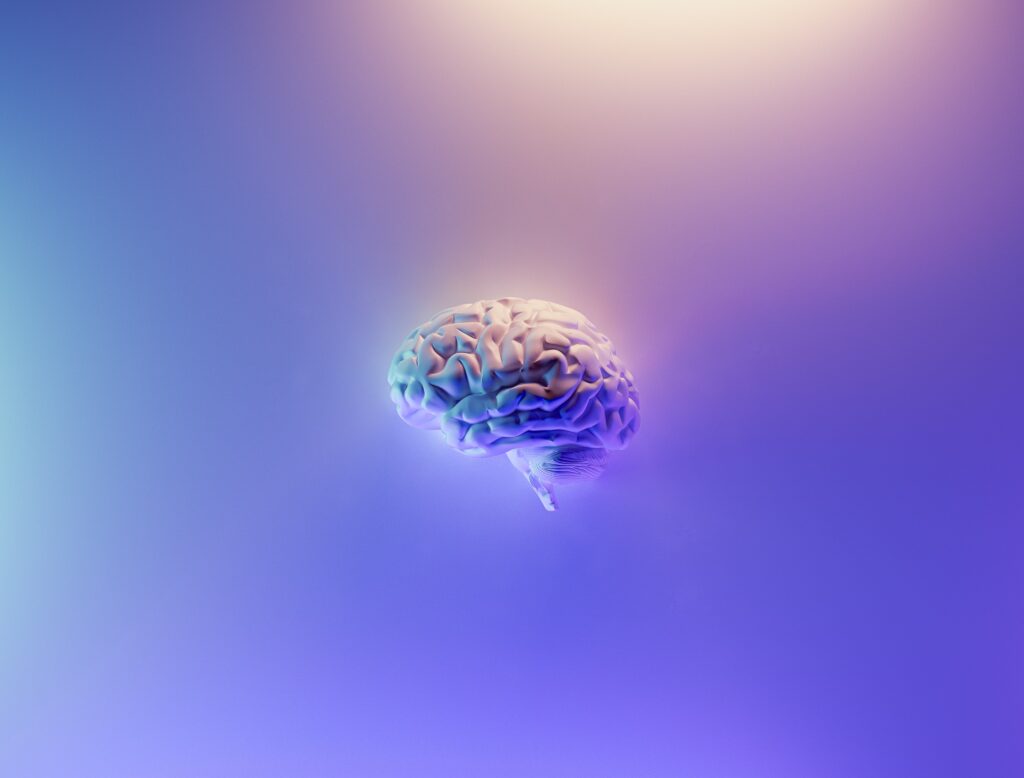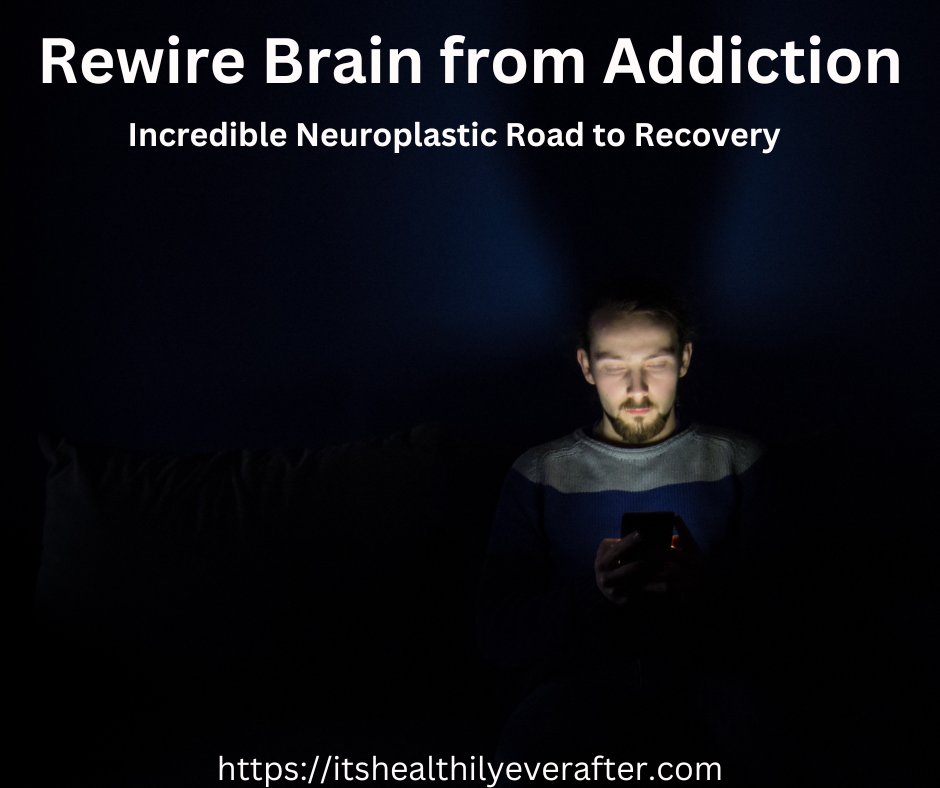In this blog post, we’ll explore how long to rewire brain from addiction, what factors contribute to the length of the process, and tips for making the journey easier. Breaking an addiction cycle is no easy feat, and it can take a long time to rewire the brain from addiction. Understanding how long it takes to rewire the brain from addiction is an important step in understanding the process and preparing for the challenge ahead. With the right knowledge and dedication, it is possible to break the addiction cycle and lead a healthier, more productive life.
Table of Contents
Introducing the Concept of Neuroplasticity
When it comes to addiction, many people believe that once someone becomes addicted to a substance or behavior, they are stuck that way for life. However, recent studies have shown that the brain is capable of rewiring itself, a phenomenon known as neuroplasticity.
Neuroplasticity is the brain’s ability to change and adapt in response to experiences and the environment. This means that even the neural pathways that are affected by addiction can be rewired through changes in behavior and thought patterns.
Neuroplasticity is a concept that suggests the brain is not static, but rather a dynamic organ that can modify and adjust to various circumstances. This phenomenon involves the creation, removal, and reorganization of neural connections, enabling the brain to adapt and learn from new experiences.
Neuroplasticity has numerous functions in brain activity, including learning and memory, rehabilitation from injury, and developing new abilities. For instance, when someone learns a new skill like playing a musical instrument, the brain forges fresh connections between neurons, making the task easier in the future.
In addiction, neuroplasticity is also significant. Addiction can lead to modifications in the brain’s reward system, altering neural connections and causing compulsive drug seeking and usage. However, the brain’s plasticity implies that these alterations are not necessarily fixed, and can be undone via various interventions like abstinence, therapy, and other treatment approaches.
The notion of neuroplasticity underscores the brain’s extraordinary potential to change and adjust, providing a basis for understanding how the brain reacts to different experiences and treatments.
While this process of rewiring the brain is not easy and can take time, it provides hope for individuals struggling with addiction. Rather than feeling stuck in a cycle of addiction, individuals can work towards changing their brains and breaking free from addiction.
Understanding the concept of neuroplasticity is important for anyone who is trying to overcome addiction, as it shows that recovery is possible and that the brain has the potential to heal itself with the right treatment and support. With this in mind, let’s take a closer look at how addiction affects the brain and the role of detox in breaking the addiction cycle. How long to rewire brain from addiction largely depends upon the potential of person’s brain which plays significant role in this process.

How addiction affects the brain
Addiction is a complex disorder that alters the way the brain functions. It’s not just a matter of having poor willpower or a lack of self-control, as some people might believe. Rather, addiction is a chronic disease that hijacks the brain’s reward system, making it nearly impossible for people to resist their cravings.
At the heart of addiction lies the brain’s reward circuitry, which is a network of neural pathways responsible for regulating pleasurable feelings and emotions. Normally, these pathways are activated in response to natural rewards such as food, sex, and social interactions. However, drugs and other addictive substances can hijack this circuitry by flooding it with dopamine, a neurotransmitter that’s responsible for producing feelings of pleasure and euphoria.
When a person uses drugs repeatedly, their brain becomes increasingly dependent on the substance to feel good. This results in a host of neurological changes that can impair decision-making, memory, and cognitive function. Over time, the brain adapts to the constant presence of the drug, leading to a phenomenon known as tolerance. This means that users need to take larger and larger doses of the drug to achieve the same high they once experienced.
As addiction progresses, the brain becomes rewired in such a way that it prioritizes the substance over all other rewards. This is why people with addiction will continue to use drugs even if they know it’s harmful or if it’s negatively affecting their life in some way.
In summary, addiction affects the brain by hijacking its reward circuitry and creating a cycle of dependence that’s difficult to break. Fortunately, the brain has a remarkable capacity for change, and with the right treatment, it’s possible to rewire it and break the addiction cycle.


The Role of detox in Breaking the addiction cycle
One of the crucial first steps in breaking the addiction cycle is detoxification. This process involves removing all traces of the addictive substance from the body. While detox can be uncomfortable and challenging, it’s essential for breaking the physical dependence on the substance.
Detox typically lasts for a few days to a few weeks, depending on the substance and the severity of the addiction. During this time, the body experiences withdrawal symptoms as it adjusts to functioning without the substance. These symptoms can include nausea, headaches, sweating, anxiety, and tremors.
Detox can take place in a medical setting, such as a hospital or rehab center, where patients receive medical support and monitoring to manage their withdrawal symptoms. Medications may also be used to ease the discomfort of withdrawal and reduce the risk of complications. How long to rewire brain from addiction also depends upon how quickly and effectively one can detox.
After completing detox, patients can move on to the next phase of addiction treatment, which involves addressing the psychological and behavioral aspects of addiction. This is where the brain begins to rewire itself, and the addiction cycle can be broken. How long to rewire brain from addiction depends upon the mental strength and soundness as well.
It’s worth noting that detox alone is not sufficient to achieve long-term recovery. Addiction is a chronic condition that requires ongoing support and management. Aftercare, such as therapy and support groups, is crucial for preventing relapse and helping patients maintain their sobriety.
There is no one-size-fits-all answer to the question of how long to rewire brain from addiction, however, research suggests that it can take anywhere from several weeks to several years to fully rewire the brain from addiction. The process of rewiring the brain involves creating new neural pathways that support healthy habits and behaviors.
In this process professional medical guidance is of prime importance which can be of great help and can monitor the progress and advise the person effectively. How long to rewire brain from addiction is a difficult question but qualified professionals who have experiences to work with such individual can guide correctly. It is important to remember that rewiring the brain from addiction is an ongoing process, and maintaining a commitment to recovery is crucial for long-term success.

How long to rewire brain from addiction
The process of neuroplasticity in rewiring the brain from addiction can vary based on the individual, the severity of the addiction, and the specific type of addiction. It can take several weeks to several years to achieve complete brain rewiring in addiction recovery. Many individuals who struggle with addiction may wonder how long to rewire brain from addiction, but there is no definitive answer as each person’s journey is unique.
Addiction is characterized by the hijacking of the brain’s reward system, which leads to intense cravings for the addictive substance or behavior. However, the brain is highly adaptable and can be rewired through neuroplasticity to reduce or eliminate these cravings with sustained effort and time. How long to rewire brain from addiction can depend on various factors such as the individual’s level of addiction, the type of addiction, and the extent of support received during the recovery process.
To start the process of rewiring the brain from addiction, it is necessary to cease engagement with the addictive substance or behavior, which can be challenging and often requires professional support.
Once the addictive behavior has been discontinued, the brain can begin to heal and rewire itself. Various methods that promote neuroplasticity, including physical exercise, mindfulness, and cognitive behavioral therapy, can aid in the rewiring process.
How long to rewire brain from addiction depends upon the will and efforts as well, adopting healthy habits such as regular exercise and a balanced diet can also support the brain’s rewiring process. The process of rewiring the brain involves creating new neural pathways that support healthy habits and behaviors.
As the brain continues to rewire itself, a person in recovery may notice reduced cravings and an increased ability to resist temptation. It is critical to recognize that addiction is a chronic condition, and relapse is always a possibility. Consistently maintaining a healthy lifestyle and seeking ongoing support can minimize the risk of relapse and promote long-term recovery.

The importance of aftercare
Aftercare is an indispensable element of addiction recovery that occurs following the conclusion of a structured treatment program. It entails continual assistance and resources that are provided to individuals after they have completed formal treatment to assist them in maintaining sobriety and preventing relapse. Aftercare services may consist of various offerings, such as peer support groups, psychotherapy, medication administration, and sober living environments.
The significance of aftercare services cannot be overstated, as addiction is a chronic condition that necessitates ongoing care and support for enduring recovery. Aftercare equips individuals with the essential tools and resources they require to persevere through their recovery journey, empowering them to navigate potential challenges and triggers that could emerge during the readjustment to everyday life.
Additionally, aftercare can help individuals stay accountable and motivated throughout their recovery process, providing them with a network of support from peers, professionals, and counselors who understand the complexities of addiction and can offer tailored guidance and encouragement.
Research has revealed that individuals who participate in aftercare are more likely to achieve and maintain long-term sobriety than those who do not. Aftercare programs can help individuals cultivate coping mechanisms, life skills, and recovery strategies that can help them navigate stressful circumstances, triggers, and other obstacles that may surface during their recovery journey.
In conclusion, aftercare is a vital component of addiction recovery that furnishes individuals with ongoing support and resources to maintain their sobriety and prevent relapse. It is essential for individuals to continue receiving care and support after completing structured treatment programs to establish a solid foundation for long-term recovery.
Bottom Line
The process of rewiring the brain from addiction is not a straightforward path as it varies greatly depending on several factors such as the individual’s condition, the intensity of the addiction, and the type of addiction. However, with the help of professionals and by adopting healthy habits that promote neuroplasticity, individuals can effectively rewire their brains to reduce or eliminate cravings.
It is important to understand that addiction is a chronic disease that requires continuous effort and support to ensure long-term recovery. Seeking ongoing support, maintaining a healthy lifestyle, and practicing healthy habits can go a long way in promoting neuroplasticity, reducing the risk of relapse, and achieving long-term recovery. It is essential to remember that rewiring the brain from addiction is a process that takes time and effort, but with the right support and attitude, it is possible to achieve a better quality of life.





Pingback: 10 Life-Changing Astounding Neuroplasticity Exercises to Rewire Your Brain - HEALTHILY EVER AFTER